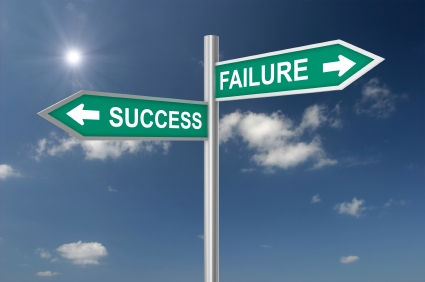 What if you told your child that you expected them to fail?
Let me be clear. I am not suggesting you tell your child they will be a failure. In contrast, what if you told your child certain parts of life are really hard, and they are not always going to succeed?
What if you told your child that you expected them to fail?
Let me be clear. I am not suggesting you tell your child they will be a failure. In contrast, what if you told your child certain parts of life are really hard, and they are not always going to succeed?
How do you think they would respond to that expectation?
As reported in the Washington Post, French researchers examined this question with surprising results. The research team presented sixth graders with difficult anagram-type problems. Some kids were told the problems were difficult, and they should not expect to always reach the correct answer. Others were given the problems without the “pep talk.”
What did they find? The kids who were told failure was a possibility performed better at the task.
I thought the researcher’s conclusion was fascinating. Author Frederique Autin stated in the WaPo article,
“We focused on a widespread cultural belief that equates academic success with a high level of competence and failure with intellectual inferiority. By being obsessed with success, students are afraid to fail, so they are reluctant to take difficult steps to master new material.“
Is this true? Are students so afraid of failure that they stifle their own learning potential? And, if so, why? The teachers? Our academic system? Testing methodology?
Or, is it us?
Are we, as parents, responsible for our children being limited by their expectations of success?
I believe that in America we have an epidemic of parents who love and care for their children so greatly; they will do anything to avoid their child’s pain or suffering. Parents are actively using their resources and experience to protect children from failure. Subsequently, children are experiencing only success. They expect it. They need it.
One consequence of a child’s expectation of success, is that failure - even the thought of failure - becomes overwhelming. Kids do not develop the ability to learn from their errors, readjust their efforts, and try again. The stress and anxiety that failure conjures blocks any further growth. They simply can’t handle it. And so, they avoid it all costs. Even if it means limiting their ultimate potential.
Our challenge, of course, is that letting our children experience pain, failure and suffering is HARD. Especially when we, as parents, often know exactly what to do to avoid the uncomfortable and unwanted feelings of failure. In addition, our kids’ success is a reflection of OUR success. So, if our kids fail... What does that say about US?
Ugh. Not so simple, is it?
So, do you know why I really like this study? I think this research provides a reassuring lesson for all of us; parents, teachers, and children alike.
I think this study gives us liberty for parents to tell our children, and to tell ourselves, that sometimes things will be really hard. We are not going to be able to always get it right. We will fail. All of us have, and all of us will again.
And, you know what? It’s OK.
As Darci Foster wonderfully commented on our Facebook page, “ I want my children to desire [emphasis mine] to take informed risks and know that yes, they may fail but their Father and I are there to support them and encourage them and they may have to try harder when they try again.”
That is what I am hoping for my kids, too. I want my kids to fail, for their own success. I want them to gather the tools to adapt, readjust, and retry. I want them to try to solve a problem, even it they might not get it right. Even though I know that sometimes, it’s gonna hurt.
What do you think? Is allowing failure needed for ultimate success? And, as parents, how do we let our children know that it is OK to fail?
